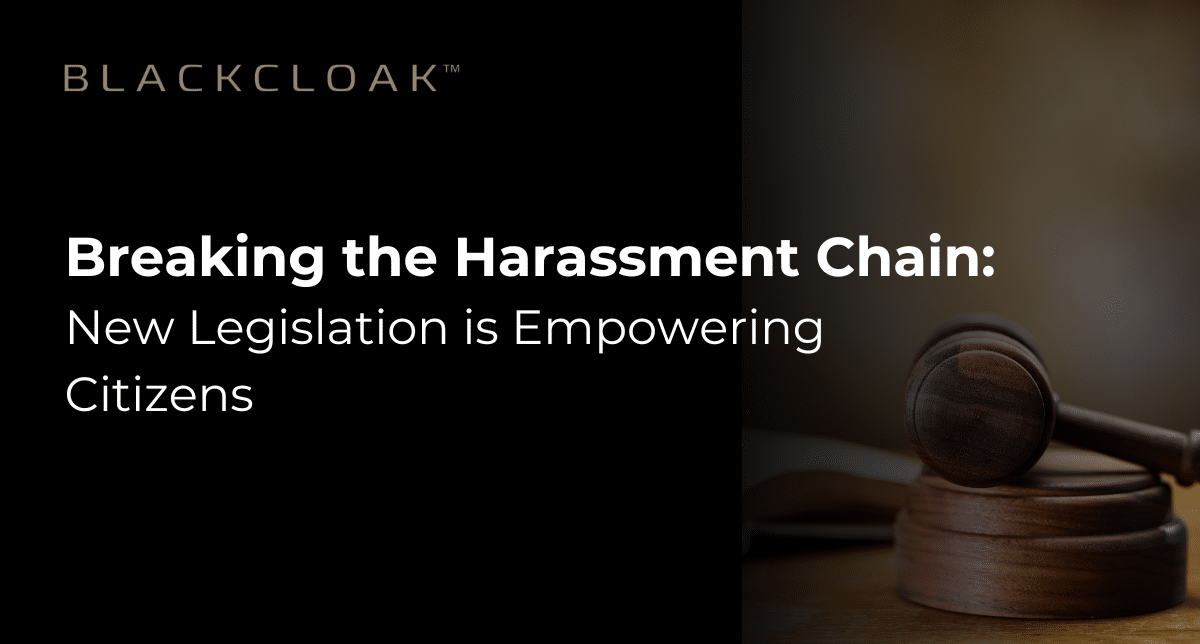Breaking the Harassment Chain: New Legislation is Empowering Citizens

Doxxing poses a severe threat to its victims, leading to harassment campaigns that can damage businesses, inflict psychological harm, or even endanger lives.
Historically, few options existed for victims seeking damages after a doxxing incident. However, the landscape is slowly changing. A new Illinois law will soon empower citizens to sue their doxxers, adding Illinois to a short list of states that offer legal recourse for doxxing victims.
Yet, the battle against doxxing is far from over, and federal legislation remains elusive. In the meantime, everyone can take necessary steps to minimize their risk of becoming a victim.
An Overview of Doxxing and Illinois’ New Law
Doxxing happens when someone publishes another person’s personal information online, such as their name, address, phone number, and email address.
Publishing this sensitive information exposes victims to immense risk. Malicious individuals can use it to harass victims and their families, organize harmful protests against businesses, and compromise physical safety. In extreme and increasingly common cases, doxxing can result in “swatting,” where law enforcement and SWAT teams raid a person’s home or workplace due to a fake threat.
While some state laws touch on this cybercrime, they often fail to provide victims with the opportunity to directly sue their doxxers.
Illinois is changing that with its Civil Liability for Doxing Act. Effective January 1, 2024, the law allows victims to sue individuals who intentionally disclose personally identifiable information to harm or harass them. Illinois now joins states like Nevada, Washington, and Oregon in offering legal remedies for doxxing victims.
However, this doesn’t mean we’ve solved the issue of doxxing entirely.
Take Action to Protect Against Doxxing
One critical element missing in the fight against doxxing is a federal law. Earlier this year, a bipartisan group of Congress members introduced the Doxing Threat Assessment Act, aiming to enable the Department of Homeland Security to evaluate risks to national security and individual privacy. Notably, this bill offers no direct right of action for victims.
So, for now, it’s crucial that everyone takes these immediate steps to protect themselves from doxxing:
- Be cautious about sharing personal information online. If an online service doesn’t require your phone number, don’t provide it. Limit your social media exposure and set your accounts to private.
- Check your devices for optimal privacy and security settings, particularly concerning GPS location data.
- Remove your personal information from data brokers and stay vigilant about what information of yours lurks in the deep and dark web.
At BlackCloak, we offer data broker removal services for our members and monitor the deep and dark web for exposed passwords. Our team also fortifies clients’ devices and secures their social media accounts.
Doxxing remains a dire cybercrime, with severe consequences for its victims. While we wait for federal legislation, it’s essential for everyone to maintain good cyber hygiene and be aware of their digital footprint.
Taking these precautions could save you many headaches in the future.








